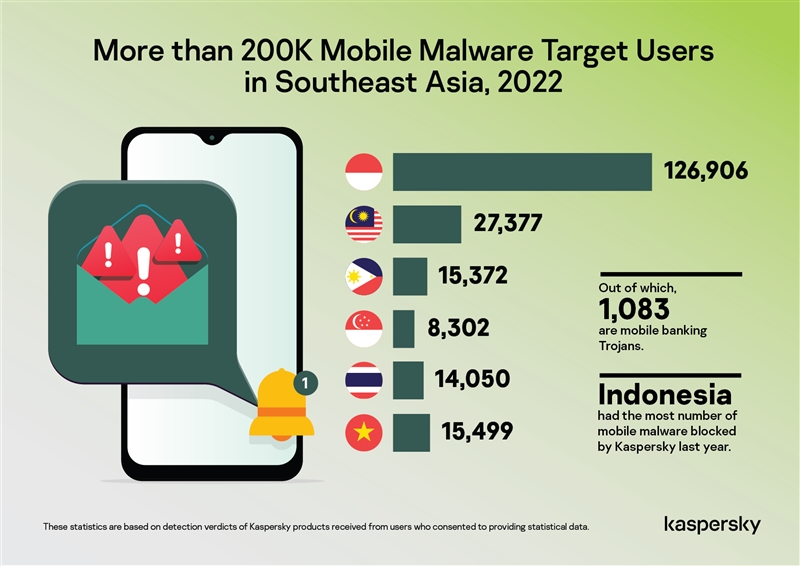
When you get a new phone, you usually find a strong case to protect it from breaking if it falls. But what about safeguarding the important information you store on it? Kaspersky, a company that helps keep devices safe, has three important reasons to explain why mobile devices need extra protection.
After the pandemic, Southeast Asia became the fastest-growing market for mobile wallets. Many people there started using online banking and e-wallets. People are still using their phones a lot to pay for things, and there are 86 services for this in Southeast Asia. This trend is expected to continue, with more successful startups taking advantage of it.
Kaspersky looked into digital payments and found that most people in the region use Android smartphones for online transactions. In countries like Indonesia, the Philippines, Malaysia, Thailand, Vietnam, and Singapore, many people prefer Android for mobile payments.
In 2022, Kaspersky stopped over a thousand attempts to steal people’s banking information in Southeast Asia. They also found more than 200,000 cases of harmful software on mobiles. Mobile devices are risky for businesses too. People often use them to read work emails and access company things. The problem is that many phones connected to work networks aren’t given by the company. They’re people’s personal phones.
Kaspersky’s experts have seen cases where sneaky cyber attackers got into company systems using infected mobiles. Some harmful software like Pegasus and Chrysor can get onto phones and steal information. In 2022, Kaspersky found more than 10,000 attempts like this around the world.
A survey showed that many people in the Asia Pacific region were victims of online fraud. But the surprising thing is that a lot of them don’t seem to care much. Most fraud happens on social media, and many people access social media using their phones. Another study by Kaspersky found that many people know someone whose information got stolen on social media. This is especially true for young people aged 18 to 34. Some people even said they were tricked on social media.
Kaspersky also looked at how people get tricked into clicking bad links in messages. They found that in 2022, their software stopped more than 360,000 of these bad links. Many of them came from WhatsApp.
In a world where phones hold our important information, it’s not just about protecting the physical device. We need to keep our data safe from digital threats too. Kaspersky’s advice tells us that mobile protection goes beyond the surface. It’s important to shield our phones and the valuable information they hold from the complex dangers of the online world.












